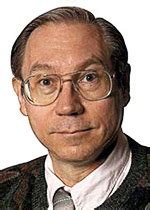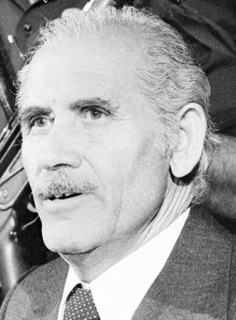A Quote by Vin Suprynowicz
A society without firearms is, in the end, a society of dim-witted, collectivist bean farmers.
Related Quotes
It's Simon. He's missing." "Ah," said Magnus, delicately, "missing what, exactly?" "Missing," Jace repeated, "as in gone, absent, notable for his lack of presence, disappeared." "Maybe he's gone and hidden under something," Magnus suggested. "It can't be easy getting used to being a rat, especially for someone so dim-witted in the first place." "Simon's not dim-witted," Clary protested angrily. "It's true," Jace agreed. "He just looks dim-witted. Really his intelligence is quite average.
If we desire a society of peace, then we cannot achieve such a society through violence. If we desire a society without discrimination, then we must not discriminate against anyone in the process of building this society. If we desire a society that is democratic, then democracy must become a means as well as an end.
If a man speculates on what 'society' should do for the poor, he accepts thereby the collectivist premise that men's lives belong to society and that he, as a member of society, has the right to dispose of them...that psychological confession reveals the enormity of the extent to which altruism erodes men's capacity to grasp the concept of rights or the value of an individual life.
Christopher Hitchens, the late essayist and sot, was a man who purposefully cultivated a lot of friends of a certain type - rich, self-important, generally dim-witted and hence easy for a well-spoken Oxbridge debater to impress - and he electrified Washington D.C. society mainly by not being a completely charmless bore.
Good farmers, who take seriously their duties as stewards of Creation and of their land's inheritors, contribute to the welfare of society in more ways than society usually acknowledges, or even knows. These farmers produce valuable goods, of course; but they also conserve soil, they conserve water, they conserve wildlife, they conserve open space, they conserve scenery.
A society which discards those who are weak and non-productive risks exaggerating the development of reason, organisation, aggression and the desire to dominate. It becomes a society without a heart, without kindness - a rational and sad society, lacking celebration, divided within itself and given to competition, rivalry and, finally, violence.
A dreaded society is not a civilized society. The most progressive and powerful society in the civilized sense, is a society which has recognized its ethos, and come to terms with the past and the present, with religion and science. With modernism and mysticism, with materialism and spirituality; a society free of tension, a society rich in culture. Such a society cannot come with hocus-pocus formulas and with fraud. It has to flow from the depth of a divine search.
The classics of Marxism talked of communism as a society to which a modern society should aspire, a society truly fair, where the relations of monetary exchange were not the priority but one wher the people's needs could be satisfied, and where people would not be worth more according to how much monetary wealth they acquired. Instead their value would be based on their contribution to society as a whole. It would be a society without class that would accept people based on their capabilities and their potential to contribute to that society.
































